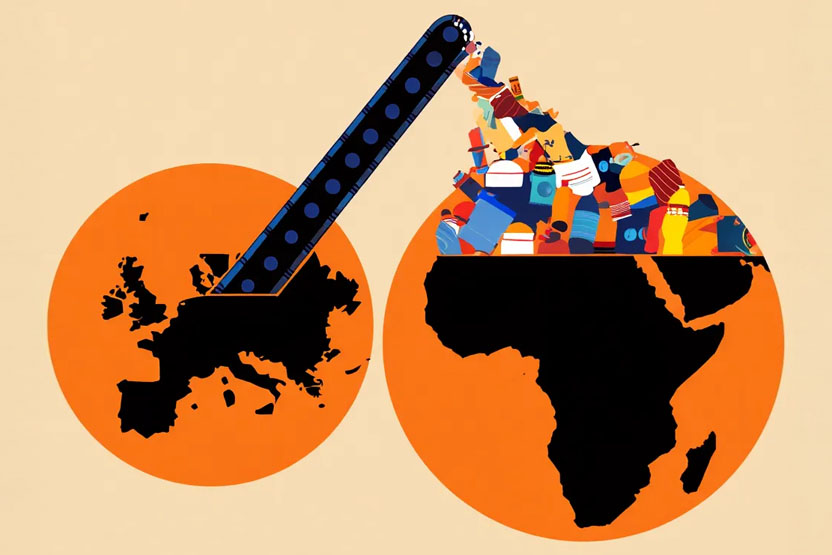
A new analysis has revealed a dramatic surge in the United Kingdom’s exports of plastic waste to developing countries — an 84% increase in the first half of 2025 compared to the same period last year. The findings, published by The Guardian and based on research by the U.S.-based group The Last Beach Cleanup, have reignited debate over Britain’s global environmental footprint and its responsibility for plastic pollution.
A Surge Hidden Behind Recycling Claims
According to the data, the sharpest rise occurred in shipments to Indonesia, which received 24,006 tonnes of UK plastic waste between January and June 2025 — up from just 525 tonnes in 2024. Exports to Malaysia also jumped to 28,667 tonnes, compared to 18,872 tonnes the previous year.
In total, Britain exported more than 317,000 tonnes of plastic waste in the first six months of 2025, maintaining nearly the same level as last year. What alarms environmental advocates is not only the volume but also the destinations: roughly one-fifth of these exports were sent directly to non-OECD countries, which lack the infrastructure and environmental safeguards to manage such waste responsibly.
While the European Union has agreed to ban waste exports to poorer nations starting in late 2026, the UK has yet to introduce a similar measure. Despite repeated pledges by the Conservative government to end plastic waste exports to non-OECD countries, official data show the opposite — exports are increasing, not declining.
“This is unethical and irresponsible waste imperialism,” said Jan Dell, founder of The Last Beach Cleanup. “The UK is offloading its plastic problem onto countries like Malaysia and Indonesia, under the false pretense of recycling.”
The British Department for Environment, Food and Rural Affairs (Defra) has declined to comment on the findings.
Experts say that a regulatory loophole continues to make exporting waste cheaper than recycling it within the UK. This economic incentive, they argue, perpetuates a system in which wealthy nations externalize the social and ecological costs of their consumption.
“It’s a moral issue,” said James McCleary, managing director of the British recycling company Biffa Polymers. “I don’t want my waste ending up in Malaysia. I don’t want to wonder if someone’s life was ruined somewhere because of what I threw away in my bin.”
“Waste Colonialism”: A Global Pattern
Environmental activists describe this growing trend as a form of “waste colonialism” — a modern echo of historical exploitation, where wealthy nations export their environmental burdens to the Global South.
Since China’s 2018 ban on waste imports, much of the world’s plastic waste has been redirected to Southeast Asia, Africa, and Turkey, where weaker waste management systems allow shipments to continue under the label of “recycling.”
Plastic pollution has become one of the most visible symptoms of global inequality. Every year, the world produces over 450 million tonnes of plastic, half of it designed for single use. Less than 10% is ever recycled, and more than 8 million tonnes end up in the oceans annually, where they break down into microplastics that infiltrate food chains, disrupt ecosystems, and threaten human health.
A Widening Environmental Divide
The burning of plastic waste — often the only disposal option in developing countries — releases massive amounts of carbon dioxide and toxic chemicals, worsening air quality and accelerating global warming. Over its entire life cycle, plastic is responsible for an estimated 1.8 billion tonnes of greenhouse gas emissions each year, more than the combined emissions of aviation and shipping.
For many observers, Britain’s export policies expose a deeper contradiction: while the country promotes sustainability and green growth on the international stage, it continues to export pollution to some of the most vulnerable parts of the world.
“If rich countries continue to treat waste as a commodity to be dumped elsewhere, there can be no real circular economy — only a circular hypocrisy,” one environmental researcher commented.
As long as loopholes persist and accountability remains weak, experts warn that the Global South will keep paying the price for the Global North’s plastic addiction.


Comment